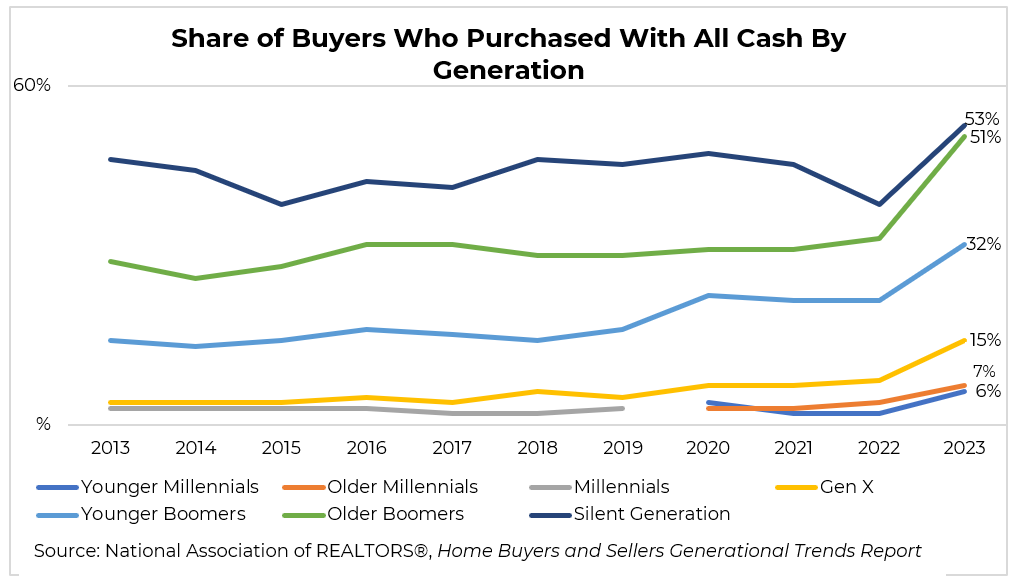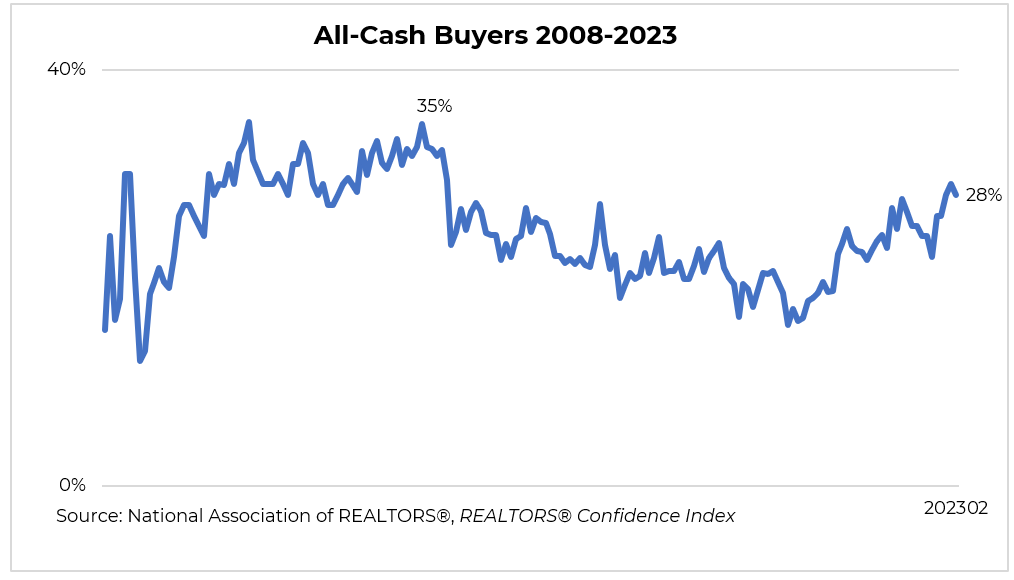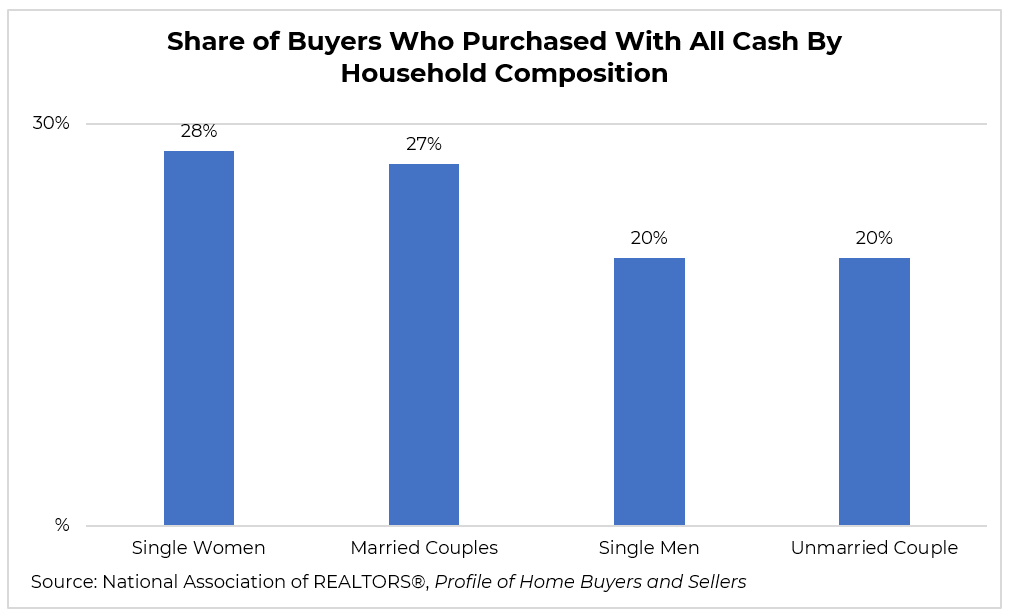Have you been looking at homes, but are concerned with affording a home priced at $400,000 or more? Just because home prices are elevated doesn’t mean you can’t achieve your goal of home ownership.
Believe it or not, but the median home price in the U.S. in Q1 2023 was $429,000. That means that most folks were getting mortgages for homes that cost more than $400,000. That number may seem like it’s a challenge to afford, but it’s still possible, even in the current environment.
There are several steps you can take to improve your ability to afford a home priced at $400,000 or more. Saving for a down payment, reducing personal debts, and managing your credit score are just a few ways to afford a home priced around the median U.S. home price.
You can continue reading to get specific advice or apply for a mortgage pre-approval. A mortgage pre-approval is a common first step that homebuyers take to begin their journey to a new home.
How much income do I need to afford a $400k home?
To afford a $400,000 home, assuming a 20% down payment and a 6.5% interest rate on a 30-year mortgage, you would need a gross monthly income of approximately $7,786.55. This assumes you have $1,000 in monthly debt.
To understand how to get to this number, you first have to understand how much your monthly payment would be with this mortgage type. With the listed conditions, this works out to 2,348.22 per month. Then, add in your additional debts, that’s $3,348.22. Then take your payments and divide by a debt-to-income ratio of 43%. That should give you a necessary monthly income of $7,786.55 to afford a home worth $400,000 with the conditions described.
Keep in mind that mortgage lenders look at debt-to-income ratios to help determine affordability. DTI ratio measures how much money you earn versus what you spend on debts. It’s calculated by dividing monthly debt payments by your gross monthly income. As a general guideline, your DTI ratio needs to be under 43% to be considered for most mortgage loans.
Please remember that the 43% DTI ratio is only a guideline. Several factors, such as your credit score, property taxes, insurance expenses, and other debts, can impact the mortgage approval. To get a better idea of your finances and figure out how much money you need, talk to a mortgage expert. A mortgage professional can customize the calculation to fit your situation and find the right mortgage for you.
What do down payment options look like for a $400,000 mortgage?
When purchasing a home worth $400,000, you have several down payment options available. The down payment is the initial upfront payment you make towards the total cost of the home. Here are some common down payment options:
20% down payment options
Putting down 20% of the home’s purchase price is a traditional and ideal down payment option. For a $400,000 home, a 20% down payment would be $80,000. This option may help you avoid private mortgage insurance (PMI) and can lead to more favorable loan terms.
15% down payment options
A 15% down payment on a $400,000 home would be $60,000. This is a moderate down payment option that can help reduce the initial cash outlay while still providing some benefits in terms of potentially lower monthly payments compared to lower down payment options.
10% down payment options
A 10% down payment on a $400,000 home would be $40,000. This is a lower down payment option that may be suitable for buyers who want to purchase the property sooner with a smaller initial cash requirement.
5% down payment options
A 5% down payment on a $400,000 home would be $20,000. This is a lower down payment option, but it may lead to higher monthly mortgage payments and the need for private mortgage insurance (PMI).
3% down payment options
Some loan programs, such as certain types of conventional loans and government-backed loans (e.g., FHA loans), offer down payment options as low as 3%. For a $400,000 home, a 3% down payment would be $12,000. While this can make homeownership more accessible, it often comes with higher monthly payments and the added cost of PMI.
It’s important to consider the pros and cons of each down payment option. While a lower down payment can make homeownership more attainable, it may also lead to higher long-term costs due to increased interest payments and potential mortgage insurance premiums. Additionally, each lender may have different requirements and options for down payments, so it’s essential to explore different loan programs and discuss your specific situation with a mortgage lender to determine the best down payment option for you.
KEY TIPS TO USE TO AFFORD A $400K MORTGAGE
To afford a $400,000 mortgage, follow these tips to enhance your financial preparedness:
-
Save for a down payment
Aim to save for 10%-to-20% of the home’s purchase price, which would be $40,000-to-$80,000 for a $400,000 home. Making a larger down payment can lead to better mortgage terms and lower monthly payments.
-
Improve your credit score
A good credit score will make it easier to qualify for a mortgage with favorable interest rates. Pay your bills on time, reduce debts, and avoid opening new credit accounts before applying for a mortgage.
-
Assess your budget
Analyze your current income, expenses, and savings to determine how much you can allocate to housing costs. It’s a good idea to maintain a debt-to-income ratio of 43% or lower to keep your finances where they need to be to get mortgage approval.
-
Get pre-approved for a mortgage
Get pre-approved for a mortgage to understand how much a lender is willing to lend you. This will help you set realistic expectations and narrow down your home search.
-
Consider additional costs
Remember that homeownership comes with additional expenses beyond the mortgage, such as property taxes, insurance, maintenance, and utilities. You should factor these into your budget when shopping for a home.
-
Shop around for a mortgage
Different lenders offer different rates and terms, so compare mortgage options to find the best mortgage deal for your situation.
-
Be patient and realistic
Affording a $400,000 mortgage may take time and discipline. Avoid rushing into a purchase that strains your finances and be patient in your home search.
-
Consult with professionals
Get advice from a money expert to make smart decisions and customize your financial plan to fit your situation.
By taking these steps, you can work towards affording a $400,000 mortgage and be better prepared for the responsibilities of homeownership. To handle a $400,000 mortgage comfortably, it’s crucial to plan well and make informed choices about your finances.
Where can I apply for a mortgage today?
Have you already identified a home in the $400,000 range? If you already have a home in mind, that’s fantastic. If you don’t, you can still apply for a mortgage pre-approval.
When you get pre-approved for a mortgage, it provides you with an idea of what you’ll likely get approved for. It also shows real estate agents and home sellers that you’re serious about looking for a home. Apply online with Guaranteed Rate to start your journey towards a new home.
Disclaimer:
An applicant is subject to credit and underwriting approval. Not all applicants will be approved for financing. Receipt of application does not represent an approval for financing or interest rate guarantee. Restrictions may apply, contact Guaranteed Rate for current rates and for more information. All information provided in this publication is for informational and educational purposes only, and in no way is any of the content contained herein to be construed as financial, investment, or legal advice or instruction. Guaranteed Rate, Inc. does not guarantee the quality, accuracy, completeness, or timeliness of the information in this publication. While efforts are made to verify the information provided, the information should not be assumed to be error-free. Some information in the publication may have been provided by third parties and has not necessarily been verified by Guaranteed Rate, Inc. Guaranteed Rate, Inc. its affiliates and subsidiaries do not assume any liability for the information contained herein, be it direct, indirect, consequential, special, or exemplary, or other damages whatsoever and howsoever caused, arising out of or in connection with the use of this publication or in reliance on the information, including any personal or pecuniary loss, whether the action is in contract, tort (including negligence) or other tortious action. Guaranteed Rate does not provide tax advice. Please contact your tax adviser for any tax-related questions.
This material is meant for general illustration and/or informational purposes only. Although the information has been gathered from sources believed to be reliable, no representation is made as to its accuracy. This material is not intended to be construed as legal, tax, or investment advice. You are encouraged to consult your legal, tax, or investment professional for specific advice.
Source: Guaranteed Rate | Matthew Dewoskin

 Facebook
Facebook
 X
X
 Pinterest
Pinterest
 Copy Link
Copy Link

















